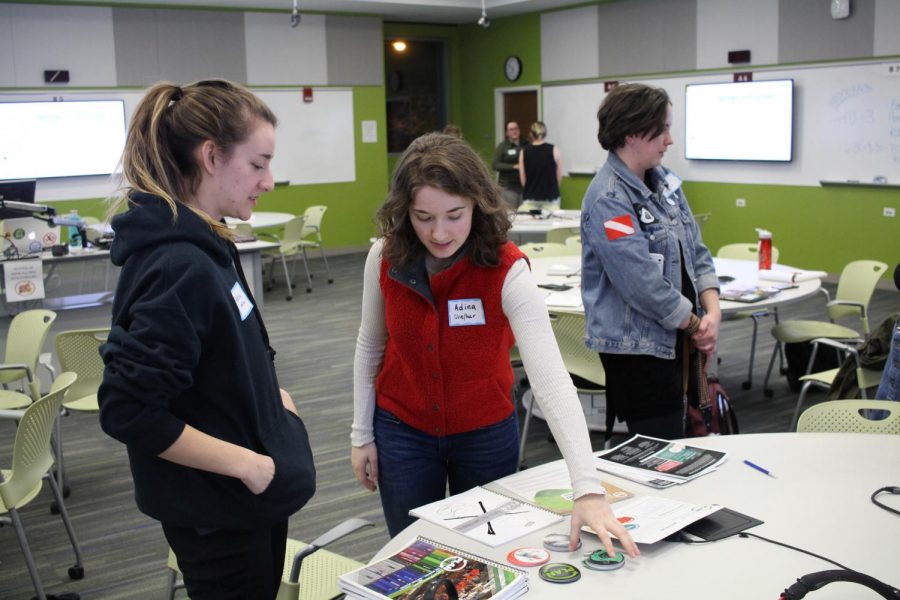This past Wednesday, professor and director of the Kinney Center for Interdisciplinary Renaissance Studies Marjorie Rubright pioneered a hands-on learning experience with the help of PhD candidate Melissa Hudasko and many others. When hearing the words “hands-on learning experience,” you may easily come to the conclusion that it’s simply a measure to skip class in the form of a field trip in order to avoid instrumental teaching from a syllabus — a break for both the students and the professor. However, you would be mistaken.
This hands-on experience was a field trip, which allowed me and my classmates to have the privilege to see award-winning actor and playwright Keith Hamilton Cobb’s “American Moor.” A 90-minute solo play that is an unconventional take on Shakespeare’s Othello, the play exposes Cobb’s experiences and relationship with the craft of acting in a white-dominated profession and society while revealing the barriers he faces as a Black man. As an audience member, I was able to watch, laugh and cry as his rendition of Othello traversed the frustration, anguish and exasperation presented through his trials as a Black male actor. In an interview with the Daily Hampshire Gazette, Cobb said, “What is important to this play is American interpretations of Shakespeare. We take the work, and there is this natural tendency toward ownership. The white American male structure has owned this work. They are descendants of Brits, and there is this sense of, ‘This is ours. We say how to do it.’ And all over the globe, people are speaking back to that and saying, ‘No. This is everybody’s.’”
Following Cobb’s performance, my class had the additional privilege of attending a talk-back with author and Barnard professor Kim F. Hall, actor Jude Sandy and director Kim Weild. This upcoming Wednesday, Cobb will be spending time with my Shakespeare class. In a lecture setting, my class could have discussed the themes of racial barriers as they are expressed in the arts. However, we could not have truly experienced it, nor learned from it as we did through this hands-on experience. I would like to personally thank everyone involved in the College of Humanities and Fine Arts who allowed for this experience to come to life and allow for students to hear one’s man voice, which can be a catalyst of change for this urgent issue in our country. It was a learning experience like no other.
Unfortunately, throughout my career as a student, I have seldom experienced similar hands-on approaches to what I have learned in my classes, both in college and high school. But, when I have, whether if it’s in conducting a lab for biology or having a guest speaker in my price theory class, it’s been incredibly compelling and is a far more effective means of capturing the class’s full attention. I recognize that there is always going to be a need for structured and basic instrumental teaching, but that doesn’t necessarily mean knowledge can’t be transferred in a way that will better allow for students to retain information and therefore move onto post-graduation areas that they are actually stronger in.
At the University of Massachusetts, ingenuity and innovation should always be supported and welcomed. However, lectures and lack of hands-on space for students is not going allow for students to be ultimately successful in their respective career paths. According to a meta-analysis study completed by the University of Washington, molds of learning that actively engage students alternatively to passive lecturing lead to a boost in students’ overall final grades by six percent. Instituting more active approaches to the learning process is a simple fix that could allow students to have more clarity and confirmation when exploring and ultimately deciding what career paths they wish to take.
Another study completed at the University of Chicago used brain scans to explore how hands-on learning affected their sensory and motor-related parts of the brain. The study concluded that when students have a physical experience while learning, the wheels in their brain are essentially turning. The director of the experiment, Professor Sian Beilock, concluded, “Those students who physically experience difficult science concepts learn them better, perform better in class and on quizzes the next day, and the effect seems to play out weeks later, as well.”
To reach students and better prepare them for post-graduation life, hands-on learning is easily the best approach UMass can implement. Whatever form it may take – attending plays, inviting guest speakers or conducting experiments – it’s a form we must take if we truly want to elevate our learning experiences.
Morgan Reppert is a Collegian columnist and can be reached at [email protected].



















